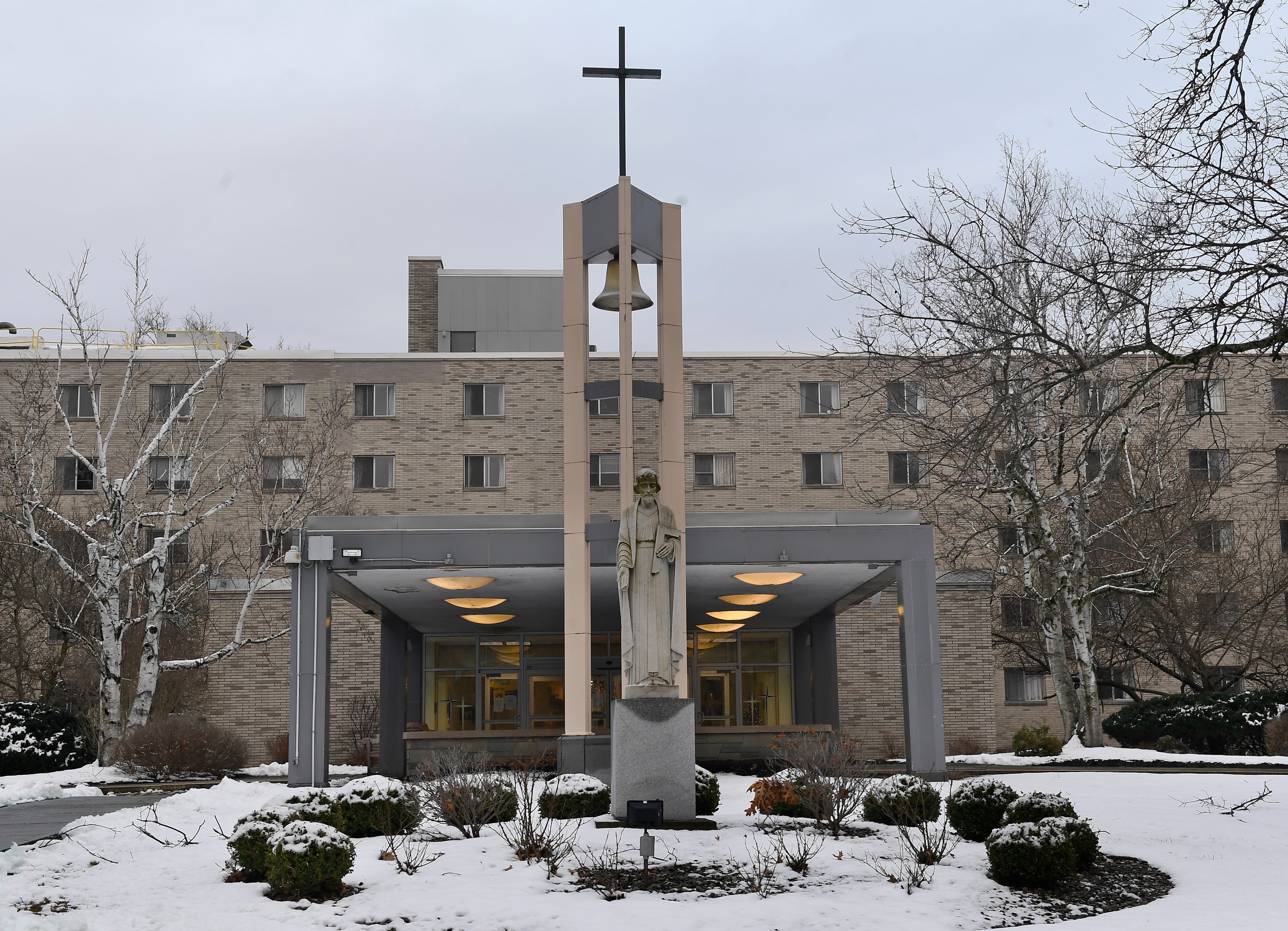Death of 9 nuns highlights toll of coronavirus in convents
A home for retired and infirm nuns lost nine residents to COVID-19 during December as the coronavirus pandemic's second wave surged in upstate New York

Your support helps us to tell the story
From reproductive rights to climate change to Big Tech, The Independent is on the ground when the story is developing. Whether it's investigating the financials of Elon Musk's pro-Trump PAC or producing our latest documentary, 'The A Word', which shines a light on the American women fighting for reproductive rights, we know how important it is to parse out the facts from the messaging.
At such a critical moment in US history, we need reporters on the ground. Your donation allows us to keep sending journalists to speak to both sides of the story.
The Independent is trusted by Americans across the entire political spectrum. And unlike many other quality news outlets, we choose not to lock Americans out of our reporting and analysis with paywalls. We believe quality journalism should be available to everyone, paid for by those who can afford it.
Your support makes all the difference.Through the month of December, mixed in with joyful Christmas messages, death announcements filled the Facebook page of the Sisters of St. Joseph of Carondelet as a coronavirus outbreak took its toll in a residence for retired and infirm nuns.
“We have lost nine beloved sisters — wonderful, dedicated members of our religious community,” said Sister Joan Mary Hartigan, director of St.Joseph’s Provincial House in the Albany suburb of Latham.
The women were 84 to 98 years old when they died at the private residence for Roman Catholic nuns in the order of St. Joseph of Carondelet, which traces its roots to 1650 in Le Puy, France.
“They had dedicated their lives to bringing Jesus’ word of love and unity to the world in various ministries, including teaching, parish work and religious education,” Hartigan said by email.
The wave of deaths at Provincial House mirrors the toll among retired or infirm nuns at several other convents around the United States. The pattern aligns with deaths at nursing homes which have also been hit hard by the coronavirus with 110,000 deaths nationwide.
At the Presentation of the Blessed Virgin Mary convent In Livonia, Michigan, 13 Felician sisters ages 69 to 99 died of COVID-19 between April and June.
Seven died at a center for Maryknoll sisters in Ossining, New York.
In Wisconsin, eight nuns who lived at the Notre Dame of Elm Grove convent died in one week in December.
Retired priests have also succumbed. In April, six retired Jesuits died at the Manresa Hall health care center in Philadelphia.
“We realize that our communal lifestyle makes us, along with other religious communities, a target for this virus,” Sister Mary Christopher Moore, a leader of the Felician Sisters of North America, said in May.
Provincial House had no positive COVID-19 cases during the first wave of the virus last spring. But as New York’s Capital Region experienced a sharp increase in infections this fall, the home, with 140 residents, wasn’t spared; 47 sisters tested positive for the virus, Hartigan said.
All were quarantined, she said. They were cared for by their personal physicians in private rooms on a dedicated wing of the Provincial House, which is not a nursing home. None participated in communal activities, Hartigan said.
Only one sister is still being treated for the virus, she said. Five staff members with mild symptoms are quarantined at home and 21 employees who tested positive have recovered, she said.
Hartigan said the Provincial House follows guidelines set by the Centers for Disease Control and Prevention and the New York State Department of Health to limit spread of the virus, including appropriate personal protective equipment, quarantining sisters who test positive and prohibiting all public access.
“We pray the increasing number of cases across our country is temporary, and we mourn the loss not only of our sisters, but also all loss of all life and all suffering during this pandemic,” Hartigan said. “We look forward to the vaccine and the end of this worldwide health crisis.”
The county health department didn’t learn the extent of the deadly toll of the outbreak at Provincial House until a story came out in the local newspaper, County Executive Dan McCoy said. That’s because unlike regulated nursing homes, retirement homes aren’t required to notify state or county officials of deaths.
“It opened my eyes to all the other facilities in the area that are group settings for seniors living in apartment complexes with no real oversight,” McCoy said. He’s looking into possible state legislation establishing guidelines for reporting outbreaks at retirement homes. “If we knew, we could get in quicker to address it,” he said.